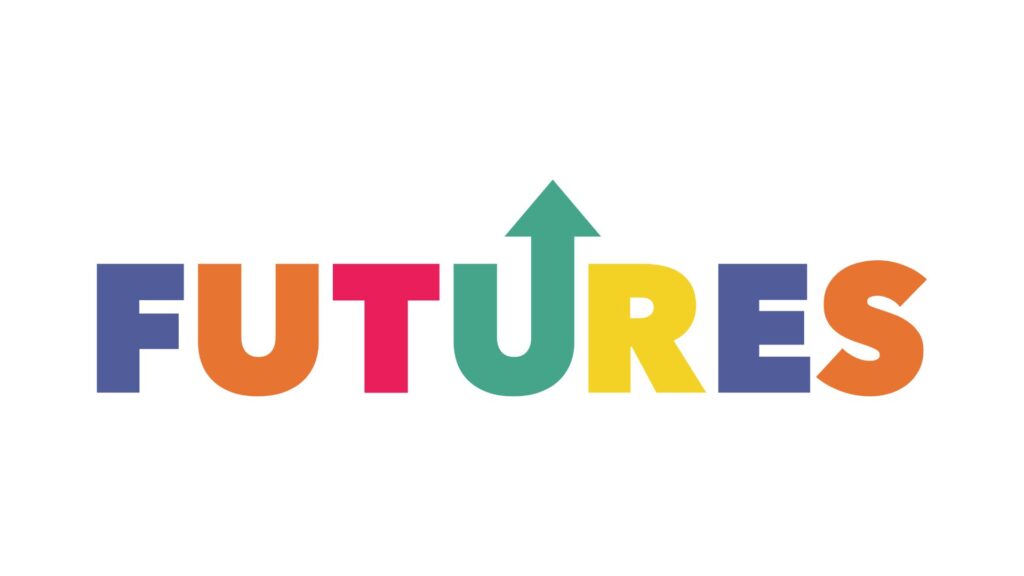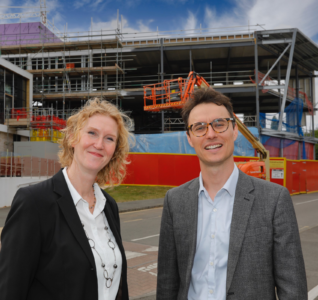At Futures, we’ve been helping people, businesses, and communities achieve more for over 30 years. As a publicly owned, not-for-profit social enterprise, we specialise in careers guidance, training, and employment services. Our mission is simple: to empower individuals and organisations to thrive, by doing the right thing, having passion and making a difference.
I’m Chris Grocock, Head of Business Development & Stakeholder Partnerships at Futures. I’ve spent over two decades in London, the North East, and the East Midlands, working across employment, skills, and economic development, supporting local authorities, private companies, and social enterprises to create meaningful change.
Why Values-Based Recruitment Matters
My career has always been rooted in purpose. At Futures, I lead strategic partnerships and business development initiatives that help people into work, drive inclusive growth, and strengthen community resilience.
In today’s workplace, recruitment isn’t just about qualifications. It’s about finding people who believe in what your organisation stands for. That’s the essence of Values-Based Recruitment (VBR), an approach that aligns candidates’ personal values with your company’s culture and mission.
With the rise of flexible working, automation, and a new generation of purpose-driven professionals, VBR is more than a trend, it’s a strategic advantage.
In addition, the East Midlands as with other parts of the UK, has seen a reduction in the immigration of skilled labour due to increased structural barriers.
At the same time, we see record numbers of economic inactivity – people not working, and not seeking work – especially amongst over 50s, but also surprisingly and worryingly, in young people, aged 18-24.
In this landscape, a “one-size-fits-all” traditional approach to recruitment won’t cut it, and VBR offers an innovative and viable alternative to address new challenges and attract new talent.
The Business Case for VBR
I’m passionate about values-based recruitment and have spoken at regional and national events, including the East Midlands Chamber People & Skills Conference, where I recently led a workshop on aligning recruitment practices with organisational values.
Here’s what values-based recruitment can do for your business:
· Stronger cultural fit: Teams that share values work better together.
· Higher engagement: Employees who believe in your mission are more motivated.
· Candidate variation and volume: More individuals will be able to access your recruitment processes and be from more diverse backgrounds.
· Improved retention: People stay longer when they feel they belong.
· Better service delivery: Especially in people-focused sectors, values-driven staff are more empathetic and ethical.
· Futureproofing: Younger talent prioritises purpose, VBR helps you attract and retain them.
· Alignment with Social Value and Inclusion. VBR will actively enhance your social value impact and help you meet inclusion priorities for your workforce.
How to Get Started
Implementing VBR doesn’t mean overhauling your entire recruitment process. It means enhancing it:
· Define your core values and map them to observable behaviours: firstly, you need to know what your values are. Secondly, you need know how to assess behaviours in your staff that do (and don’t) reflect those values.
· Train recruitment managers to assess values objectively: overcoming unconscious bias is key. Whilst VBR broadens what you are assessing in potential and existing employers, it still needs a structure that’s based on fairness and impartiality.
· Integrate values into job adverts, interviews, and onboarding: it’s critical that you describe both your values and your approach to VBR as part of the marketing of your roles and throughout the recruitment processes.
· Use tools like situational judgement tests and realistic job previews: don’t rely on a sequence of application forms, presentations and competency-based interviews. There’s much more you do with VBR, and the process doesn’t have to be linear.
· Track outcomes like retention and engagement to measure success: crucially, is VBR working for you. As well as the hard statistics of recruitment and retention rates, undertake more candidate and staff engagement activities to capture qualitative feedback.
Avoiding Common Pitfalls
To make VBR work, avoid these traps:
· Vague values: Have values specific to your business and its goals, not vague philosophical principles. Make them actionable and observable in day-to-day the tasks and workplace behaviours that are relevant to you.
· Bias: Don’t throw all structure out the window in effort to identify and measure values, as this could lead to an informality that risks bias. Use structured interviews and diverse panels as part of efforts to address this.
· Overemphasis on “values-fit”: Balance values with skills and experience, which are still an important component of the recruitment process
· Lack of transparency: Clearly explain the process to candidates, especially those who are neurodivergent. The relatively more “free form” nature of VBR may be confusing or overwhelming to some people who require more structure.
Support is Closer Than You Think
You don’t have to do this alone. There’s a wealth of publicly funded support available, from DWP and DfE programmes to local authority initiatives and employer networks. And of course, Futures is here to help guide you.
We offer free, tailored recruitment services that connect you with candidates who are not only qualified but also aligned with your values.
Posted on 11 September 2025







